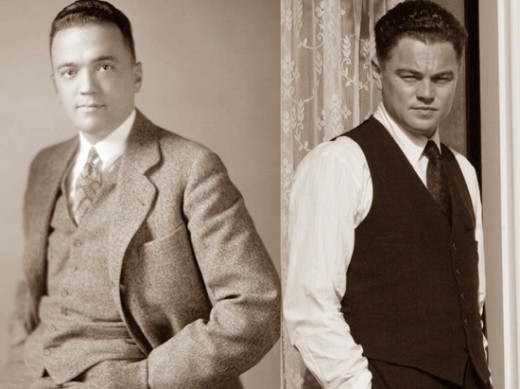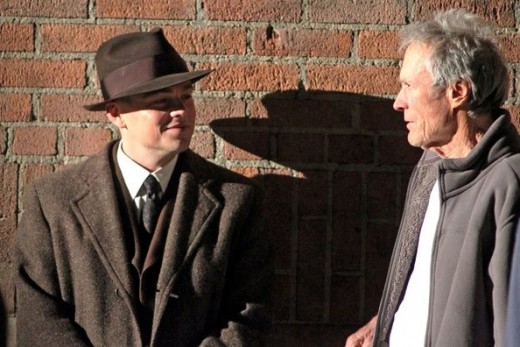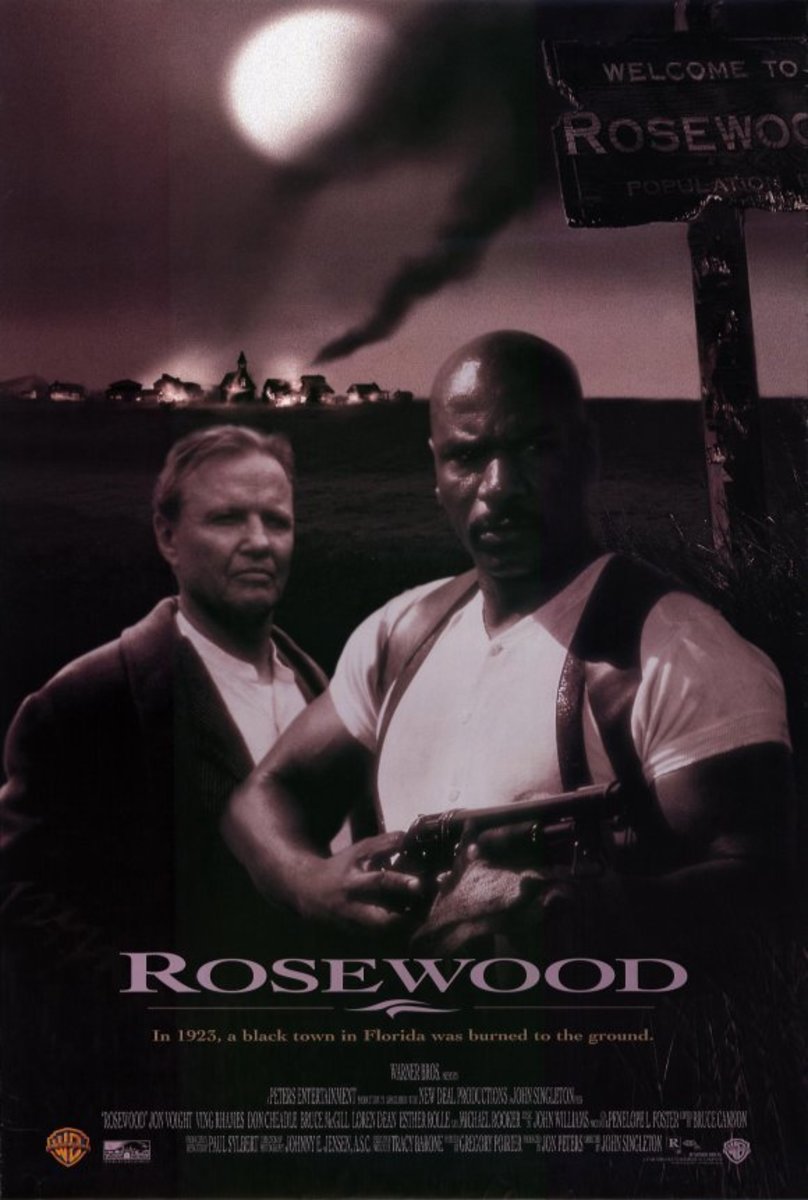"J. Edgar" Is A More-Of-The-Same Bio-pic Despite Terrific Acting

Another award season and another sprawling biographical film about a larger-than-life American figure reaches theaters. “J. Edgar” tells the tale of 20th century American icon J. Edgar Hoover during his five decade-long career as the head of the Federal Bureau of Investigation. Directed by Hollywood legend Clint Eastwood and starring Leonardo DiCaprio as the powerful yet flawed lawman, “J. Edgar” ends up being a typical bio-pic will little thrills despite DiCaprio’s strong performance.
Hoover is presented as a complex figure. As a stamp on 20th century history, he has left a considerable mark on modern-day crime investigation. In his early adult life, Hoover had an eye for detail and believed then-current police procedures in the 1920s was sloppy in regards to handling evidence. Upon his rise within the Bureau of Investigation, he advocated a centralized system of record keeping, in particular suspects’ finger prints which could be traceable when left at a crime scene. He recruited scientific experts to examine forensic evidence, which was unheard of at the time at the Bureau. Hoover is portrayed as an ambitious, power-hungry lawman yet paralyzed with paranoia. He believed Bolshevik Communists were an increasing domestic threat. He had difficulty trusting even the most loyal FBI agents within his ranks. Above all, he believed almost every presidential administration from F.D.R. to Nixon was out to get him by shutting down the Bureau.
The film alternates between Hoover in the mid-1960s dictating his own autobiographical manuscript and flashback scenes at key moments in his career. In the early 1920s, then-Attorney General Harlan Stone (Ken Howard) cleans house of the Department of Justice’s Bureau of Investigation and appoints Hoover as the head due to his work dedication. As a government law enforcer, Hoover had to overcome state and local-level scrutiny in order to gain respect. Throughout the 1930s, bank robbers like John Dillinger ruled the newspaper headlines and gained public sympathy during the Great Depression. G-Men were seen as the bad guys and so it was Hoover’s mission to legitimize the organization.
In 1932, the “crime of the century” occurred where aviation hero Charles Lindbergh’s son was kidnapped and Hoover intervened in the investigation despite local police objections. Upon the capture and conviction of German immigrant Bruno Hauptmann two years later, Hoover believed the Bureau was given legitimacy and public support. Despite the Bureau’s efforts, Hoover painted himself as the real hero and produced exaggerated accounts on his heroism. Above all, Hoover demanded respect despite hiding his own insecurities.
By the 1960s, he believed his Bureau was being oppressed by the Kennedy administration in the backdrop of the Civil Rights movement and foreign involvement against Communists. Hoover wanted to be remembered for his legacy within the Federal Bureau of Investigation. He did not want to lose his position of power so he kept secret confidential files of the highest government figures. It’s suggested he had evidence on an alleged lesbian tryst between First Lady Eleanor Roosevelt and a female reporter as well as recordings of President John F. Kennedy with various women. Hoover only trusted three individuals in his life. His mother Anne Marie (Judi Dench), his long-time personal secretary Helen Gandy (Naomi Watts) and Associate Director and closest confidant Clyde Tolson (Armie Hammer). As power driven as Hoover is depicted, he is at his most vulnerable in the wake of his mother’s death and Tolson’s near-fatal stroke in 1964. Since Hoover’s death in 1972, there has been speculation about his alleged homosexuality and cross-dressing. DiCaprio portrays Hoover as a sexually-reppressed individual who cares more about his work than his social life. He recruits Tolson as his number two due to an initial attraction but is conflicted as to how to define their kinship. The film does not go into detail regarding a physical relationship with Tolson (aside from a passionate on-screen kiss), but it’s implied that the two have been intimate with each other over the years.

Dustin Lance Black, who won the Oscar for his “Milk” screenplay, portrays Hoover and Tolson in a similar co-dependent loving couple fashion with that of Sean Penn and Jame’s Franco’s characters. Whereas Harvey Milk was an openly gay politician who advocated equal rights in the 1970s, Hoover represented an older generation that treated homosexuality as a disease and as social pariahs. Hoover masked his sexuality with his dedication to his work. The irony is that Hoover outed radical leftist Communists through wire-tapping and confidential record keeping in the name of American security. Hoover was a flawed individual whose ego proceeded him but nonetheless left a lasting mark on modern-day criminal investigation. Hoover had his critics while trying to overcome his own insecurities.
While Hoover remained an interesting subject for a biographical film, the film itself tended to follow the same bio-pic format, which is unfortunate considering its a Clint Eastwood film. Eastwood, who has proven himself to be a much more talented director than actor, created a visually satisfying film that recreates the American landscape over the course of four decades. Much like his other more recent period piece “Changeling,” this film presents great attention to detail to the time period with at-times stunning cinematography. A lot of public attention has been made regarding the make-up used to age up the actors. At first, it becomes distracting and takes away from the early scenes of of the film. While DiCaprio tried to pull of the frailed look of a titan in his 70s, you still picture that cherub face behind the mask.

DiCaprio himself does not disappoint in his portrayal of Hoover, but the marketing and the timing behind this film makes audience goers think DiCaprio is just itching for an Oscar. Lately, acting Oscars have been awarded to stand-out performances of real life figures. DiCaprio was previously nominated for his portrayal of Hollywood icon Howard Hughes in Martin Scorsese’s “The Aviator.” Yet, perhaps what drew DiCaprio to the role as Hoover was the similarities between him and Hughes. Both were power-driven icons of the 20th century who put success and respect over their own happiness while trying to overcome personal insecurities. They were both innovators in their respected fields: Hughes with aviation and Hoover in crime fighting using forensic techniques. And yet, both men were incredibly paranoid about outside forces that could take away all of their hard work which ultimately led to their downfall.
Throughout the film, DiCaprio stays dedicated to this complex person and the extent of his acting talents is in full force when Hoover believes he is at his most defenseless. As stated previously, DiCaprio keeps reaching for an Oscar but he is still considered a young actor in Hollywood. He has a terrific career ahead of him and I look forward to every movie he has to offer. Unfortunately, while “J. Edgar” has its technical strong points, it is not a stand out biographical film. At best, it’s an interesting dramatization of the history of the F.B.I. and American politics during the course of four tumultuous decades in this country’s history.





